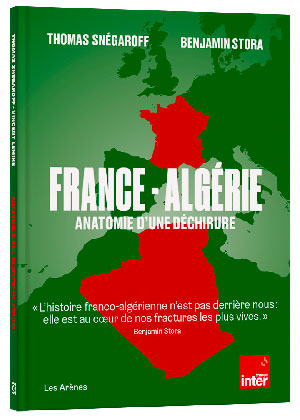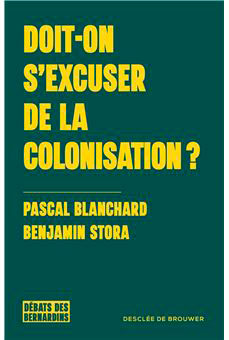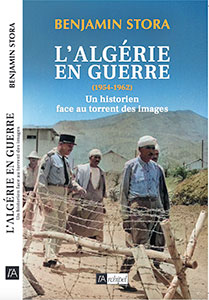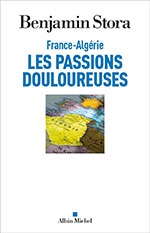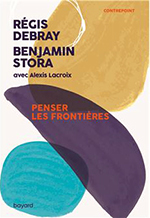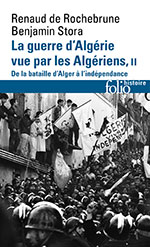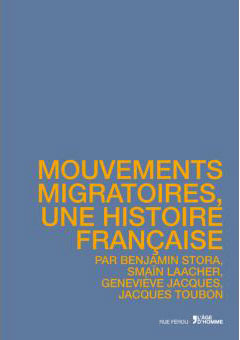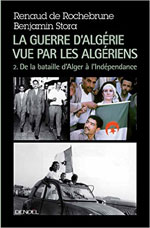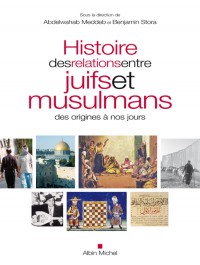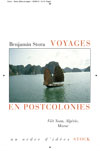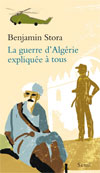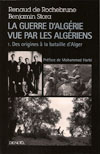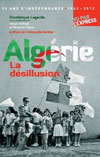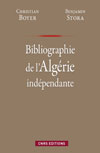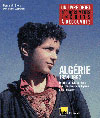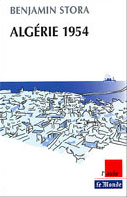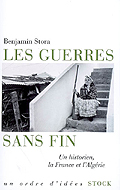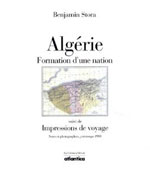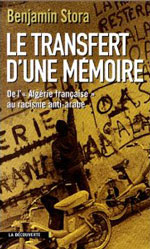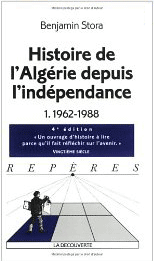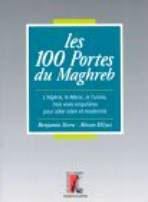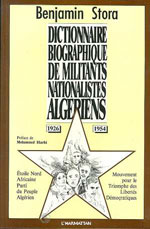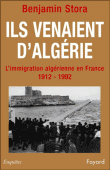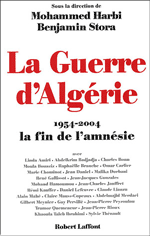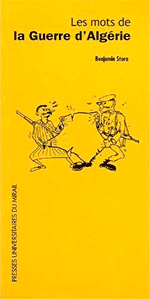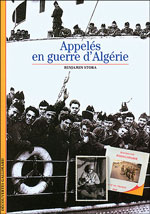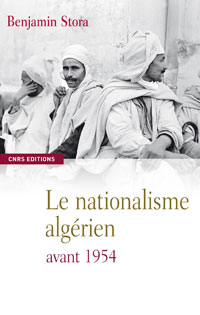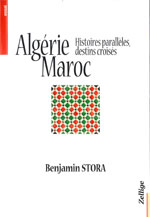Introduction by Benjamin Stora, in The Maghrib in the New Century: Identity, Religion and Politics, Univ. of Florida Press, 2007.
Contemporary Maghribi societies face a host of political, social, and economic challenges, which derive from both the flow and ruptures of North African history over the longue durée and social, and the ever-accelerating processes spurred by modernity and globalization. Underpinning these challenges are large-scale demographic pressures, with all the expected impact on state-society relations and relations with Europe, the legacy of authoritarianism and violence, both state-sponsored and from opposition movements, and the region's geo-strategic and economic importance.
The Maghrib today, namely, the core countries of Morocco, Algeria, and Tunisia, in addition to Libya and Mauritania, has roughly eighty million inhabitants. With this many people on Europe's threshold, reinforced by the historic links between the northern and southern Mediterranean shores, the European Union (EU) cannot help but take a keen interest in the unfolding of events in the region. Moreover, the Maghrib itself is widely represented in Europe, particularly in France, where the Muslim population, the majority of whom are of North African origin, ranges between four and five million. This population weighs heavily on France's domestic and foreign policies. Indeed, it is impossible to analyze contemporary European politics without referring to Europe's large North African immigrant population in countries such as France, Spain, Holland, Belgium, Italy, and Germany.
With all of the recent focus on demographics and emigration, other features of contemporary Maghrib life are sometimes downplayed. But the horrific, barbaric violence in Algeria during the 1990s, in which over 150,000 people may have lost their lives in the bitter struggle between the Algerian authorities and radical Islamist groups, will not soon be forgotten, either in Algeria or among its neighbors. And the appearance in May 2003 of radical Islamist terrorism in Morocco served as a reminder that local, regional, and global forces may interact to produce a toxic brew in that country as well.
The third focal point of the Maghrib's ongoing importance has to do with location and resources. The region's strategic location along the Mediterranean coast and in close proximity to the straits of Gibraltar, as well as its status as a commercial crossroads, has drawn French, other European, and U.S. attention for many years. Added to that interest in recent years has been the discovery of a vast repository of natural gas under the Saharan sands, the world's largest desert region, thus increasing the Maghrib's value in the world economic system.
With these underpinnings of North African realities in mind, we can now turn to specifics. The primary political challenge in the contemporary Maghrib is the question of state legitimacy half a century after decolonization. For many years following the achievement of independence, leading political forces in the Maghrib--for example, the Moroccan Istiqlal party, the Front de Libération Nationale (FLN) in Algeria, and Habib Bourguiba's Neo-Destour in Tunisia--drew legitimacy from their earlier anticolonial activities against the French, and the nationalist movements provided these countries with leadership up until the 1990s. Their political vocabularies, as well as many of their stances on substantive issues, were related to the legacy of the anticolonial struggle and their identification with wider Arab nationalism. This ideology served as a means of cooperation and liaison between the three nationalist movements and the wider Arab world. But as the tide of Arab nationalism steadily ebbed, the now-aging nationalist movements were forced to discard their ideological tenets and found themselves adrift without an anchor.
The first country to experience this process was Algeria. Algeria's independence was championed by a nationalist movement, one that was populist and opposed to a multiparty system. The nationalists, who purported to speak for "the people," considered political parties a source of weakness dating from the colonial period. They had little interest in establishing a pluralist political system and asserted that their own movement could confidently lead an independent Algeria. But the country's one-party system, led by the FLN, quickly disintegrated into numerous factions and was unable to effectively lead Algeria's citizens.1 As Algeria dismantled its one-party system in October 1988, the entire FLN-orchestrated structure collapsed.2 Concurrently, the disintegration of the Soviet bloc, which had previously supported many Arab nationalist regimes, introduced profound uncertainty in many countries. In Algeria, it helped create an acute "legitimacy deficit." Part of the uniqueness of Algeria was that the FLN had been not merely a political party but a hegemonic "state party." Hence, the legitimacy deficit in the wake of the collapse of the status quo was now especially grave. The FLN's swift political demise during 1988<n>92 was in many ways the state's demise, affecting its political personnel and ideological representations. In other words, the FLN's crisis proved to be a crisis of historical legitimacy for the state.
This void in Algeria's political landscape, fueled by the regional crisis of Arab nationalism and the concurrent absence of a successor political generation within the FLN, was quickly filled by the Islamist movement, which sought to furnish a new political vision, taking advantage of Algeria's sudden and ultimately short-lived democratic opening. Algerian president Chadli Benjedid's decision in 1988 to lift restrictions on political activity and effectively end the FLN's exclusive control over the political system brought new groups and political organizations to the fore. Among them was a coalition of radical Islamists and traditional pious urban groups, which attracted the country's alienated youth. This extraordinary new force in Algerian politics, the Islamic Salvation Front (Front Islamique du Salut, or FIS) scored sweeping successes in the 1990 municipal elections and in the aborted parliamentary elections of December 1991. At the same time, the advent of democracy brought to the fore a number of components of Algeria's nascent civil society, such as trade unions, women's movements, and a newly independent and combative press. These elements quickly found themselves in a bitter struggle with the Islamists, ultimately resulting in the army's intervention and the descent to civil war. The collapse of the Algerian state party and the attempt by the Islamist movement to fill the resulting void may well presage a similar pattern in other Arab countries.
The question of legitimacy overshadows political developments in other North African nations. For example, the bloodless "medical" coup that overthrew Tunisia's president Habib Bourguiba in 1987 did not contest the ideological aspects of Bourguiba's political legacy. His successor, Zayn al-Abidin Ben Ali, placed stability at the heart of his rule, that is, he sought at all costs to avoid repeating the Algerian experience. In doing so, he drew support from large sectors of Tunisian society.
Although Morocco is a monarchy, it was not immune from its own version of the legitimacy crisis, in which the king's omnipotence and combined political and religious leadership was challenged. King Hasan II attempted to avert this crisis during the 1990s by reaching out to established opposition political parties, such as the Union Socialiste des Forces Populaires (USFP), and incorporate them into the decision-making process. The USFP's assumption of leadership of the governing coalition in 1998 culminated a long negotiation process between the party and the monarchy, ensuring the continued, controlled evolution of the Moroccan political system, in stark contrast to the rupture in Algeria.
The political transition of the Maghrib's postindependence nationalist-authoritarian order to a more pluralist, law-based democratic one is only in its early stages. Indeed, the construction of political democracy in the Maghrib, the only type of system that can attain genuine legitimacy from the populace, is one of the region's greatest challenges. To be sure, Tunisia's ossified domestic political climate and sterilized political system leave little possibility for a significant transformation of political life in the short run. But for Algeria and Morocco, the issue is most salient, and the battles for political liberalization rage in full force. They are fought by groups such as Berber activists, women's rights advocates, journalists, and other civil organizations and forums, as well as Islamists.
In spite of its slow pace, the struggle for greater political democracy in North Africa is far more advanced in the Maghrib than in the Arab Middle East. Even in Iraq, which has begun its own journey toward democracy, one must note that this process was spurred by foreign intervention and guidance. By contrast, Algeria and Morocco's democratic initiatives have been spurred from the outset by indigenous forces, underscoring once again North Africa's unique path of political development, setting it apart from the Middle East.
The second major challenge North African countries--indeed, nearly the entire African continent--currently face is the question of emigration.* North African societies are particularly affected by the presence of substantial numbers of qualified, educated individuals unable to find proper employment, who thus seek to build new lives in more prosperous settings, mostly in Europe. Unlike previous emigration waves, made up mostly of unskilled laborers, today's Maghribi migrant workers include large numbers of physicians, pharmacists, engineers, and other professionals. With European countries already wrestling with the need to absorb Muslim immigrants and renegotiate their own social contracts, the continued pressure for immigration also has serious ramifications for Maghribi states. For now, European restrictions on entry visas for potential Maghribi immigrants are likely to increase socioeconomic unrest within the Maghrib states. In addition, those who are desperate enough to leave their home countries at any cost often resort to extreme and hazardous ways to enter Europe, adding another challenge to both Maghribi governments and the European Union.
There are several remedies that might help alleviate this problem. One would be a sort of "European Marshall Plan" for North Africa, a large-scale economic and social development program necessitating massive financial investments. But getting such an enterprise off the ground is no simple matter, particularly since European governments are not of one mind regarding the idea. Not surprisingly, countries directly affected by North African immigration tend to favor such an idea, whereas those more removed from the flow of Maghribi migrants do not. Such a plan could also alter the nature of Euro-Maghribi economic relations. North Africa has, for the most part, remained economically dependent on European states in the postindependence period. The Maghrib remains a supplier of fuels and natural resources to Europe and a market for Europe's industrial exports. Its trade with EU countries is uneven and leaves the region far behind the economic and political powerhouse situated on its northern frontier.3
Within North Africa, the allure of Europe remains high, particularly among the younger generation. In contrast to previous generations, which viewed education as the stepping stone to an improved social and economic life at home, many of today's young Maghribis consider emigration to be the most effective means of social mobility. This sentiment is compounded by the impact of Western and European consumer goods, as well as satellite television programs that offer actual glimpses of daily life in Europe. These enticing images sharply contrast with the depressing economic reality in which many North Africans exist. In addition, these young Maghribis are affected by a process of individualization, which also plays a part in their decision to emigrate. Whereas earlier waves of North African immigrants to Europe maintained close ties to their families and the communities left behind, today migrants often feel less restricted by familial expectations and community norms. Emigration to Europe has ceased to be a collective endeavor and has now become primarily an individual enterprise, reflecting the social transformations taking place within Maghribi societies. Any type of a Marshall Plan devised for the region would have to address these social changes, requiring the reconstruction of the region's sorely deficient educational infrastructure and professional training facilities.
The third aspect worthy of scrutiny and analysis in North Africa is the rise of alternative, transnational political identities that implicitly pose challenges to the nation-state as presently constituted. Independent Maghribi nation-states inherited their geographical borders from the colonial era. These frontiers often disregarded traditional geographical affiliations and were contested by local residents. To overcome these difficulties, North African states adopted a mix of Arab nationalism--originating, of course, in the Mashriq (Arab East)--and a harsh, centralizing Jacobinism. The resulting authoritarian state was strong enough to repress for two generations any rival political movements or alternative forms of collective identity. However, this is no longer the case. The rise of competing Islamist and Berber movements pose strong challenges not only to the existing political order but also to the very concept of what modern Maghribi states should be.
North African Islamist movements, for example, view the concept of a nation-state as a divisive political form and prefer to emphasize overarching political concepts such as "the Muslim umma" (community) as their point of reference. In their minds, the division of the region into territorial states is a reminder of the colonial era and its destructive legacy on the geographical, political, and social composition in the region. Nonetheless, North African Islamist movements focus the bulk of their attention on local developments within their respective countries, suggesting that they are more "local" in character than their ideology might suggest.
The emergence of an articulate movement promoting ethnic Berber culture and identity among Algerian and Morocco's Berbers has also contributed to the growing debate surrounding the viability of Maghribi states as they are presently constituted. The new Berberist ethos, accompanied by demands for political and cultural pluralism, stands in explicit opposition to the tenets of centralized Jacobin-style state authority, as well as to Arab-Muslim Sunni political tradition. The Berber activist groups are devoted to advancing political democracy, in contrast to the Islamists, who desire the implementation of the Shari{ay}a. However, both challenge the nation-state's omnipotent position, implicitly or explicitly. Indeed, the dialectics of these challenges may well result in the emergence over the next few decades of a "Maghrib of regions," transcending existing political borders and forming alternative sociocultural units that share a common dialect, lifestyle, family ties, and even cuisine. Such a reality would contrast sharply with the Maghrib's colonial heritage and mark a symbolic return to the precolonial era. Indeed, regional cooperation along those lines already exists in some fashion between the residents of Oujda, Morocco, and Tlemcen, Algeria. Both communities share similar political and cultural patterns, as well as affiliation with religious brotherhoods, and their disregard of the political border dividing them is evident, even though it has been officially closed for more than ten years.
This type of regionalism also may lead eventually to some type of federal or confederal framework. To be sure, Maghribi nation-states are currently strong enough to resist these undercurrents. But the rise of Berber movements in Algeria and Morocco, which veer between cultural-ethnic demands and subtle, latent expectations of a greater political voice, suggest that such a scenario may very well become a reality in the not-too-distant future.
A fourth challenge facing the Maghrib in the coming years is the silent revolution currently sweeping through the region regarding the status of women. Algeria experienced demonstrations in the early 1980s over the country's proposed family legal code. Resulting legislation institutionalized women's unequal legal status, granting men the right of repudiation and permitting polygamy.4 Less than a decade later, Algeria's women's movements and activists were thrust into the battle with the violent Islamist opposition and paid a heavy price: Hundreds of women were killed because of their explicit rejection of Islamist norms of behavior and appearance. Morocco, for its part, has been the scene since the early 1990s of a nonviolent culture war of its own over the issue, culminating in King Muhammad VI's scrapping, in October 2003, of the existing personal status code, the Moudawwana, in favor of a new family law granting women a much greater measure of equality.5 Moreover, behind these visible battles lies a development of utmost importance: the significant decline in the birth rate in both Algeria and Morocco over the last two decades, following in Tunisia's footsteps. This trend underscores the fact that North African women are increasingly less constrained by traditional mores and social expectations regarding the number of children they will bear and are playing an active role in family planning. The reality of families consisting of five to ten children, which was common twenty or thirty years ago, no longer exists, as the average family size has shrunk drastically. Accordingly, the region is witnessing a change in gender relations. Marriage age for many women is much higher today than a generation ago, when it was not uncommon to see girls just entering puberty married. The rise in the marriage age is particularly noticeable among the Maghrib's urban population. This group has experienced significant changes in its lifestyle, traditions, education, and social interactions. The effects of this revolution, still very much a work in progress, have not been measured. But its impact on the nexus of family, society, state, and politics is likely to be significant.
A final challenge, which reveals yet another facet of the contemporary Maghrib, is the question of language. Language serves as one of the foundations of political and national identity the world over. Yet one of North Africa's particular features is the existence of several languages spoken in each country. Although Arabic is the region's official language, Tamazight (Berber) and French are widely used as well. Paradoxically, Berber dialects are more widely spoken in Morocco than among Algeria's more overtly politicized Berber communities. French, of course, remains the language of commerce and science and is spoken by millions across the region, in spite of the fact that French was often viewed in the initial postcolonial period as an unfortunate relic of the preindependence period.
The rise of Berber culture movements, which unceasingly demand that Tamazight be recognized as an official national language alongside Arabic, adds another dimension to the complicated North African linguistic landscape. Although ruling regimes have advocated comprehensive Arabization policies throughout the independence era, the degree of proficiency of Arabic among Maghribi populations is still uneven. Many North Africans are unfamiliar, wholly or partially, with classical literary Arabic and resort to local spoken dialects that often deviate widely from extant rules of proper Arabic grammar. The promotion of Berber dialects in daily speech and in the educational system, after decades of declining usage, establishes a potential alternative to the use of colloquial Arabic, further complicating the Maghrib's linguistic scene. Of course, the language question must be understood as an additional component of the complex and increasingly fluid relations between state power and Maghribi societies.
North African countries currently face a host of economic and social difficulties. But it is the recent spate of terrorist attacks in the region, and the involvement of young Maghribis in jihadist groups abroad, that casts a long shadow on the region's future prospects. Although Algeria's decade of internal strife between Islamist militias and government forces is by now well understood (and largely over), the Maghrib has recently been forced to confront significant incidents of terrorism that depart from the realm of the longstanding tensions between local rebellious Islamist parties and militias and the ruling regimes. These attacks, such as the 2002 attack on an ancient synagogue in Jerba, Tunisia, or the May 2003 bombings in Casablanca, were motivated by darker, jihadist forces with a worldwide agenda not necessarily linked to local Maghribi developments. One indication of how radical a departure their actions are from earlier violence was their employment of suicide bombers, a previously unheard-of phenomenon in the Maghrib.
This form of extreme violence not only challenges the Maghrib's security authorities but also forces North Africa's Islamist movements to negotiate, directly or indirectly, with these destructive forces and formulate their own positions vis-à-vis these movements and their actions. As a result, the delicate balance between Islamist movements and state authorities is likely to suffer additional convulsions, especially if these radical groups attempt to carry out additional attacks.
One final note. The combination of political and economic stagnation has resulted in a troublesome phenomenon--the spread of disinterest and detachment throughout Maghribi societies. There are already indications that the region's political classes have distanced themselves from larger elements of society and appear to be only remotely preoccupied with the lives and lots of broader social segments. Such an attitude fuels sentiments of despair and hopelessness, which can be identified especially among large segments of the Maghrib's overwhelmingly youthful population. Disillusioned by grim economic prospects, and inundated with unrealistic promises made by Islamist movements, the fate of the younger generation should be a matter of concern to any party interested in the Maghrib's future. Indeed, restoring political hope to a population numbed by unmatched expectations and unfulfilled promises may very well be the overarching challenge facing the region in the early twenty-first century.
Notes
1. William Quandt, "Algeria's Transition to What?" Journal of North African Studies 9, no. 2 (Summer 2004)..
2. Hugh Roberts, The Battlefield: Algeria 1988<n>2002, Studies in a Broken Polity (London: Verso, 2003).
3. Gregory White, A Comparative Political Economy of Tunisia and Morocco: On the Outside of Europe Looking In (Albany: State University of New York Press, 2001); George Joffé, "The Euro-Mediterranean Partnership Initiative: Problems and Prospects," Journal of North African Studies 3, no. 2 (Summer 1998)..
4. Mounira M. Charrad, States and Women's Rights: The Making of Postcolonial Tunisia, Algeria, and Morocco (Berkeley and Los Angeles: University of California Press, 2001).
5. Bruce Maddy-Weitzman, "Women, Islam and the Moroccan State: The Struggle over the Personal Status Law," Middle East Journal 59, no. 3 (Summer 2005)..

